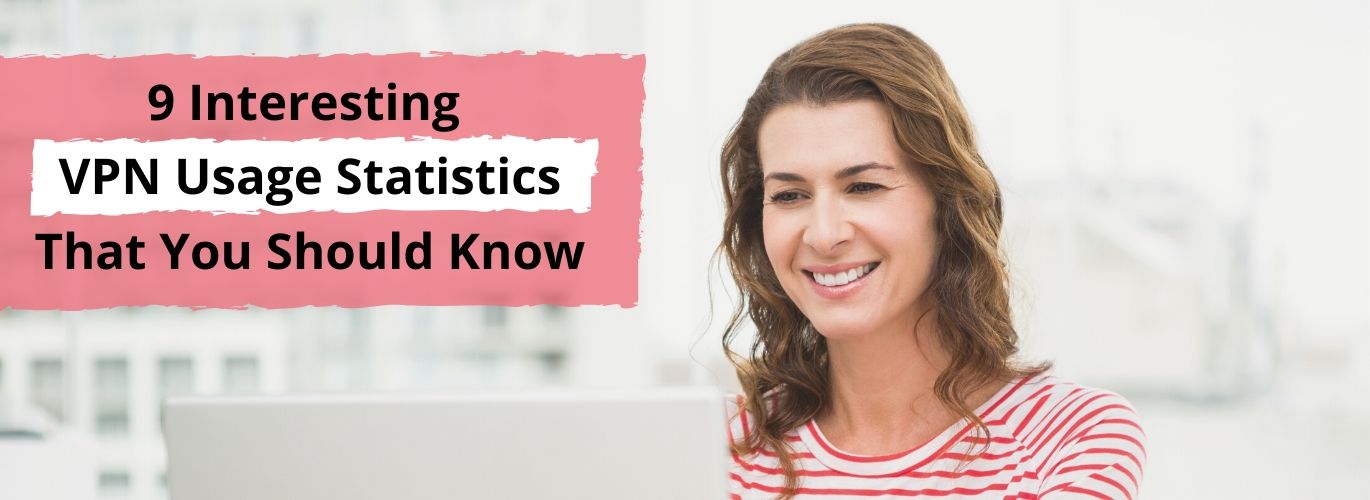
Most VPNs are basically the same. They make the same promises, have similar features, and do the same basic job.
That’s not a complaint, by the way! It’s good to have competition, and nuance is important.
BUT, every now and then, a VPN comes along that distinguishes itself as a unique contender.
Enter Speedify:
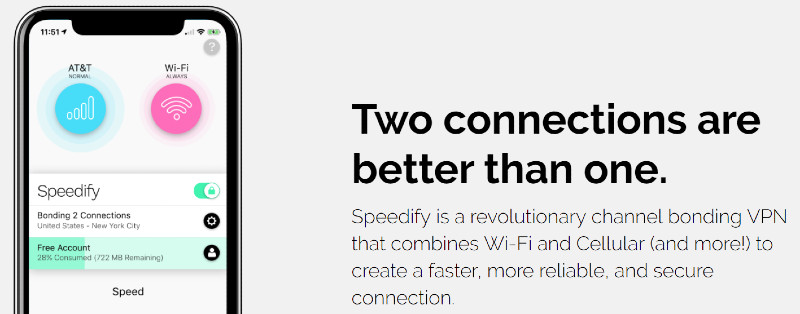
Yep. Speedify is a VPN with a special focus: a focus on combining different types of internet connections seamlessly.
But you might know that quite a few VPNs already offer encryption for data as well as WiFi. This leads to some questions:
Is Speedify offering something new, or a fancy name?
And is that all Speedify is good for, is it a good VPN in other ways as well?
Is it within my budget?
Don’t worry my friends—I’ve tested Speedify thoroughly and I’ve got answers to all those questions, and more.
Let’s start off with this:
Performance
We all care about VPN performance. It’s 2019, and many of us are not tolerant about slow speeds or glitchy apps.
Speedify says it’s got great speeds. I mean, it’s in the name.
So I decided to run a speed test, this time at my local library. Here’s the result WITHOUT Speedify:

Okay, let me just say something: my library’s internet is crazy fast. And in fact, even the best VPNs are gonna seriously reduce that speed test result.
Anyway, here’s Speedify’s test result:
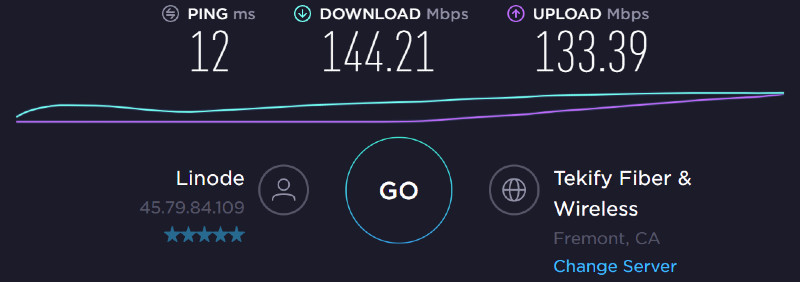
NICE!!!!
Let me just say, this is one of the best speed tests I’ve ever conducted at my local library (and I’ve conducted quite a few!)
But you know what?
That’s not the end of the performance trials.
Naturally, browsing the internet with high speeds is great, but not the only thing a lot of people want to do.
A lot of VPN users are in it for Netflix and other geo-restricted streaming content. So I decided to give Netflix a whirl while connected to Speedify.
In this case, I tried to access Slovenian Netflix. Here’s what happened:

It worked!
Although it did seem slower than usual—maybe it was just the Slovenian server.
So I tried different locations around the world, and found Netflix was absolutely fine on them.
So, hats off to Speedify!
But if you read my reviews often, you know we’re only two thirds of the way there. We need to check out how well torrenting works with Speedify, too.
Luckily, Speedify has P2P and BitTorrent optimized servers, so I connected to one of those, and gave it a shot:
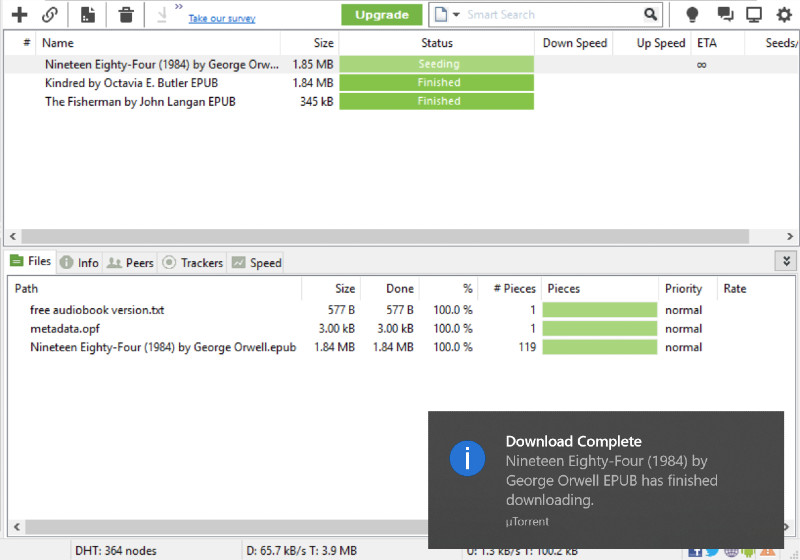
And it worked just fine!
Now, once while testing Speedify, I tried to torrent using a different location—not the P2P friendly servers in Amsterdam.
And that’s when this happened:
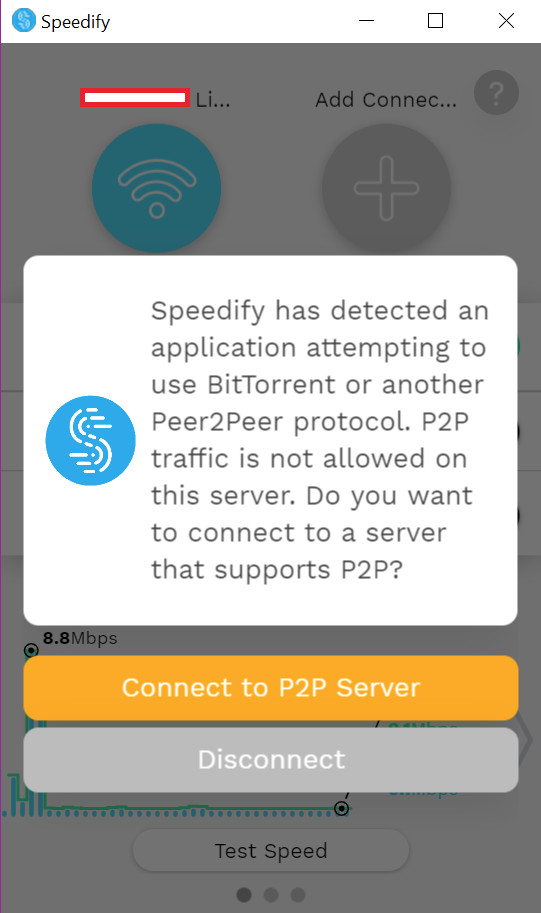
I was dumbfounded, for a sec.
See, NO VPN has told me to switch to a different server because I had uTorrent in the background.
In fact, I’ve torrented using American servers with almost every different VPN I’ve tested.
So I found this super frustrating. And in fact, kind of creepy.
But hey, at the end of the day, at least it works, and is relatively speedy.
So far Speedify is off to a good start. But we’ve still got more to unpack:
Ease of Use
I often say ease of use is underrated.
I stand by it, but it’s extra important with Speedify. Why?
Because Speedify’s big thing is the channel bonding feature, and it’s sort of crucial they make it as hassle-free to do as possible.
But it’s best to start at the beginning:
The website shows the different plans you can purchase pretty clearly.
Once you find the plan you want, you can move to checkout without even leaving the page. This will pop up:
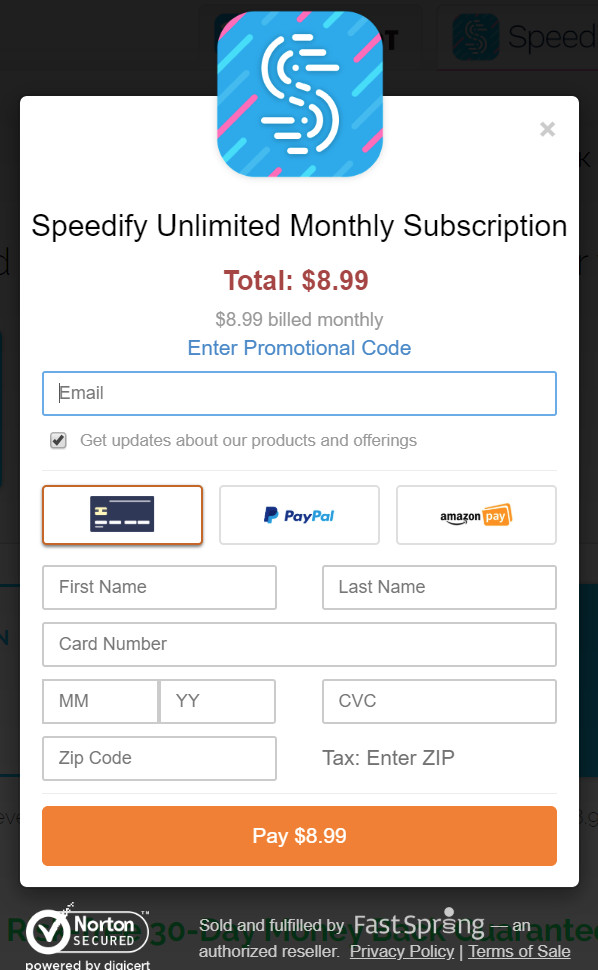
Heck, the confirmation even appears on the same page in a little popup. Then you’ll continue to this page:

Speedify has one of the FASTEST checkout processes of any VPN I’ve used—props!
Anyway, you’ll be emailed a receipt and a link to create a password. Once you’ve set a password, you can download the software:
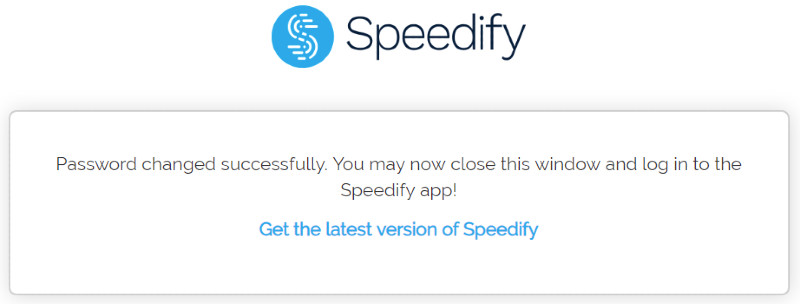
The installation seemed to glitch out on me a bit, but it resumed on its own and downloaded quickly:
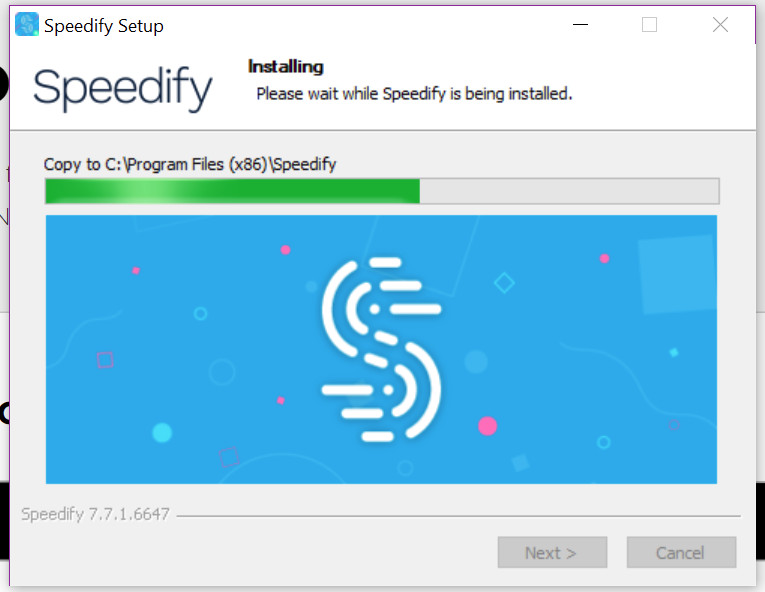
Once it finishes, the app will appear with a bit of a description:
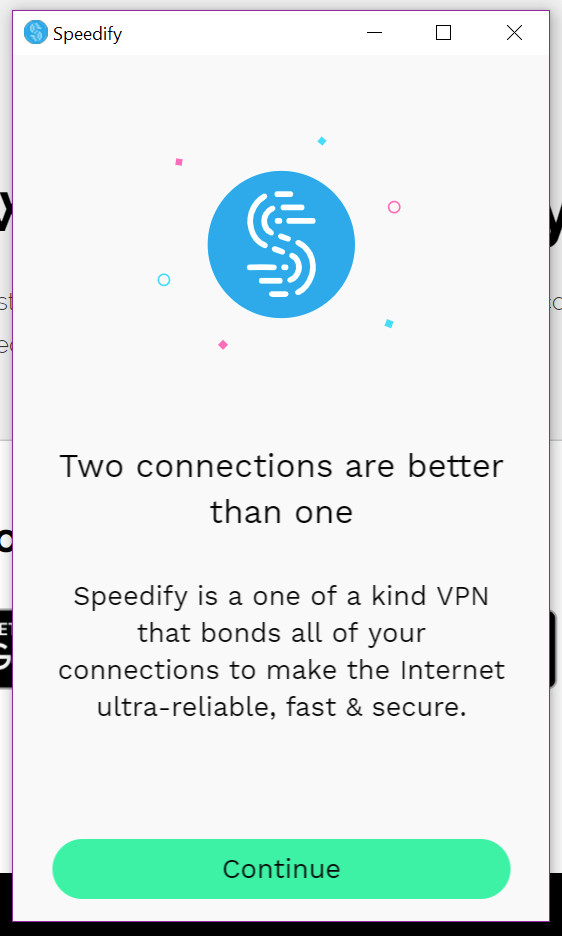
And clicking continue will take you to the app’s home page:
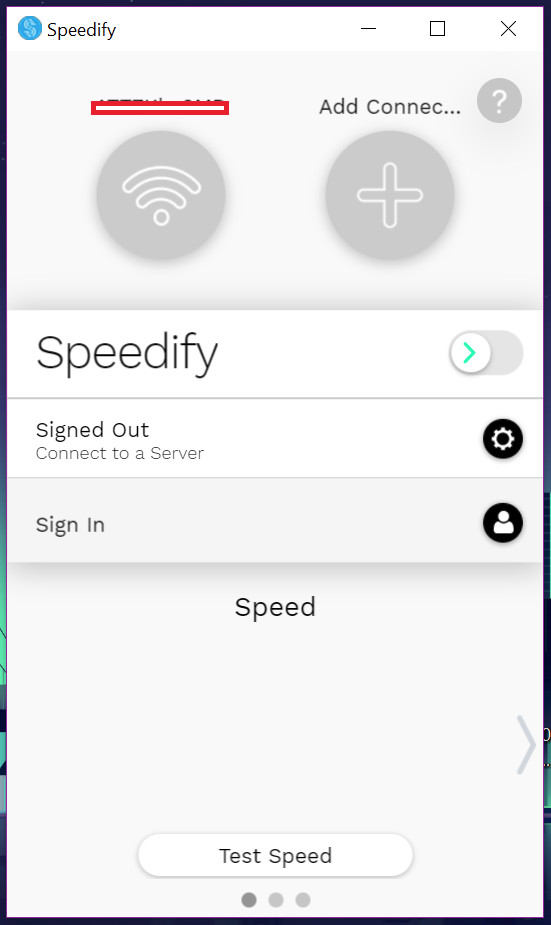
See that arrow on the bottom right side of the app? Clicking that will show you different metrics.
So you can look at the speed of your connection, the breakdown of your usage on a monthly or daily basis, and the connection quality.
I hadn’t seen this sort of display style before, so I liked it a lot.
You’ll have to sign into the app (if you don’t, you’ll be using a free account by default). Once you do, it’ll automatically connect:
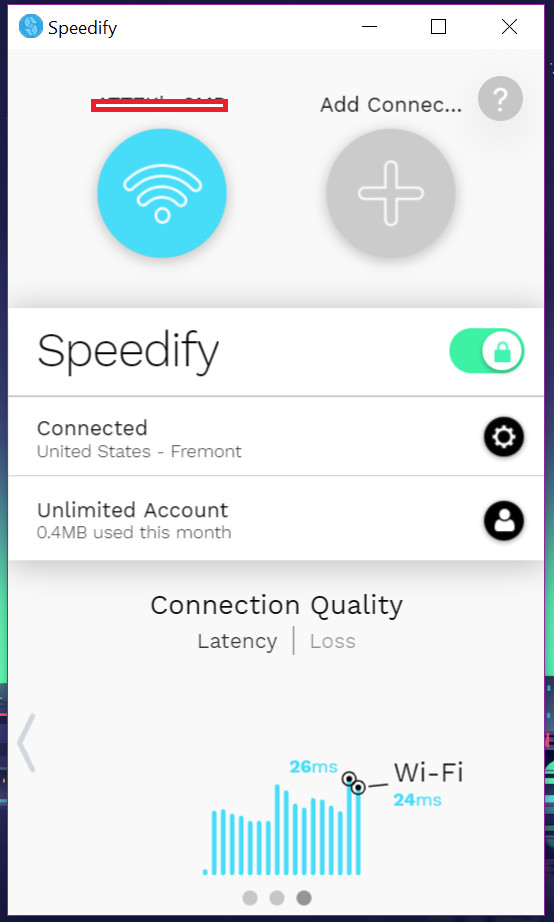
So that’s cool.
Clicking the little gear on the right side of the “connected” label will pull up the server list:
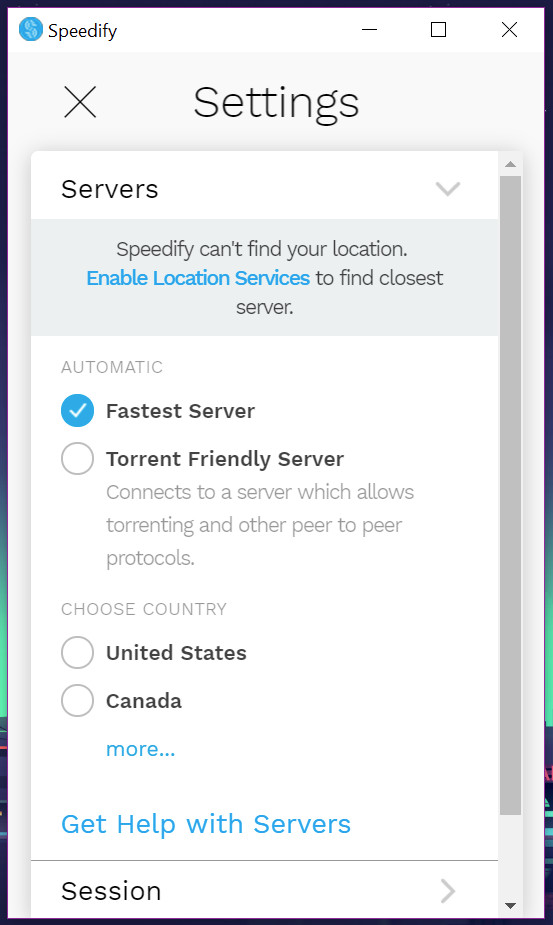
It’s pretty rudimentary. Nothing fancy or innovative about design here—just choose from the drop-down menu.
To select locations within countries, you have to click the name of the location in the home page. That will bring up this:
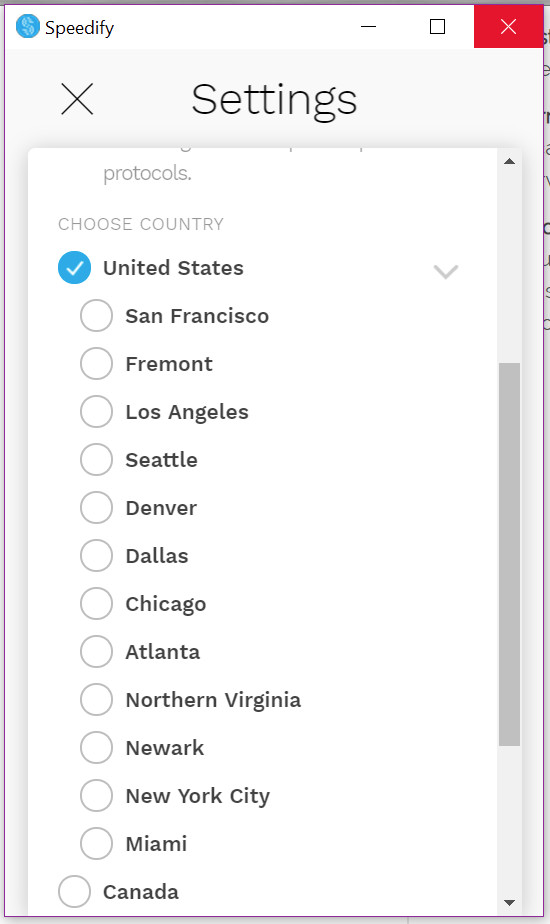
And from there you can select cities to choose from multiple servers, should the option exist:
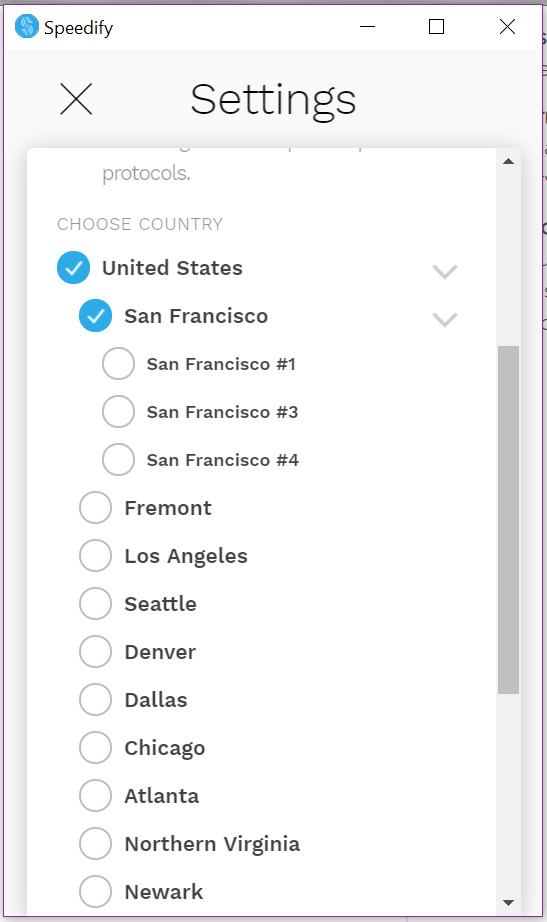
That gear on the home page, by the “connected” tab, also brings up your settings. I’ll be honest, I was surprised by how advanced it could get:
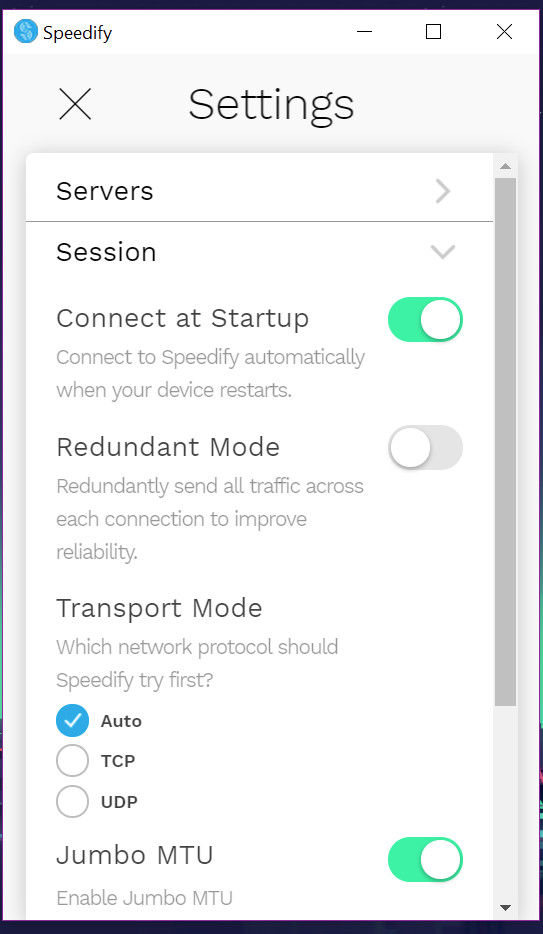
But notice that each option has a short and CLEAR explanation under it.
Believe it or not, not all VPNs do this. In fact, many leave it to the user to already know or to search through support pages.
Sure, advanced users may roll their eyes at the explanations, but it doesn’t hurt anyone.
Now, that basically sums it up for the app.
BUT, there is one thing I’ve saved for last:
The actual channel bonding feature!
Remember those big circles at the top of the app? One of them has my regular WiFi network. The other is a gray plus sign, for me to add a connection.
Clicking the plus button actually takes me to a support page—kind of annoying, but whatever. At least it’s useful.
Anyway, I followed the instructions on the support page (they were so simple that they weren’t really necessary) and tethered my Android phone to my PC.
Once that happened, the Speedify app automatically registered it:
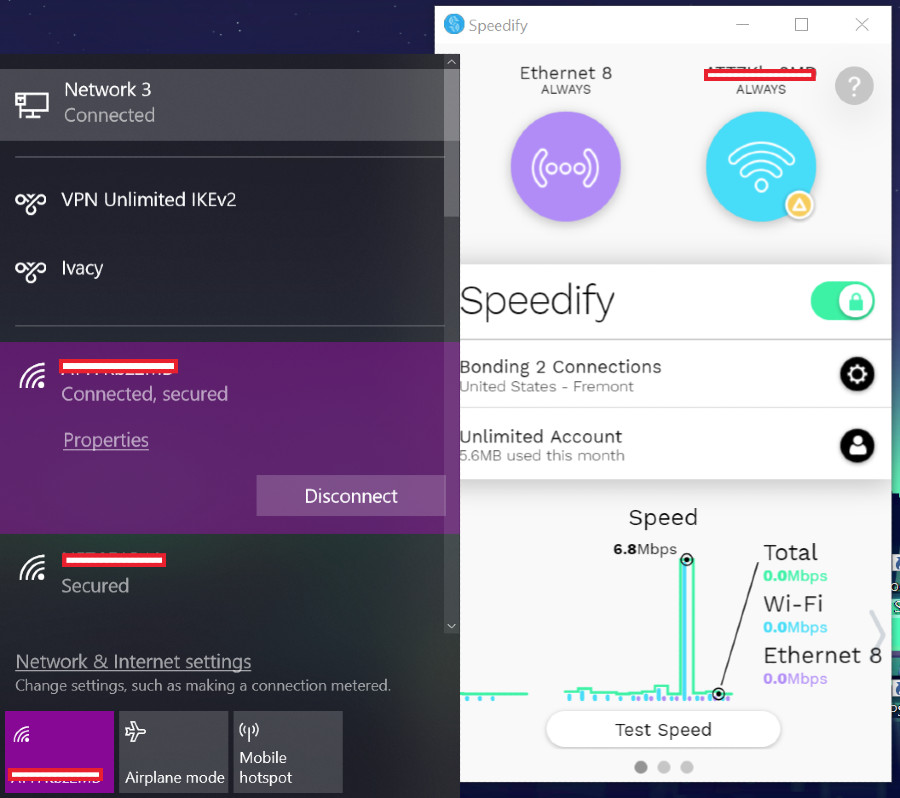
Which is really cool!
And frankly, super easy.
And if you click either of the big circles for your connections, you’ll get some connection settings:
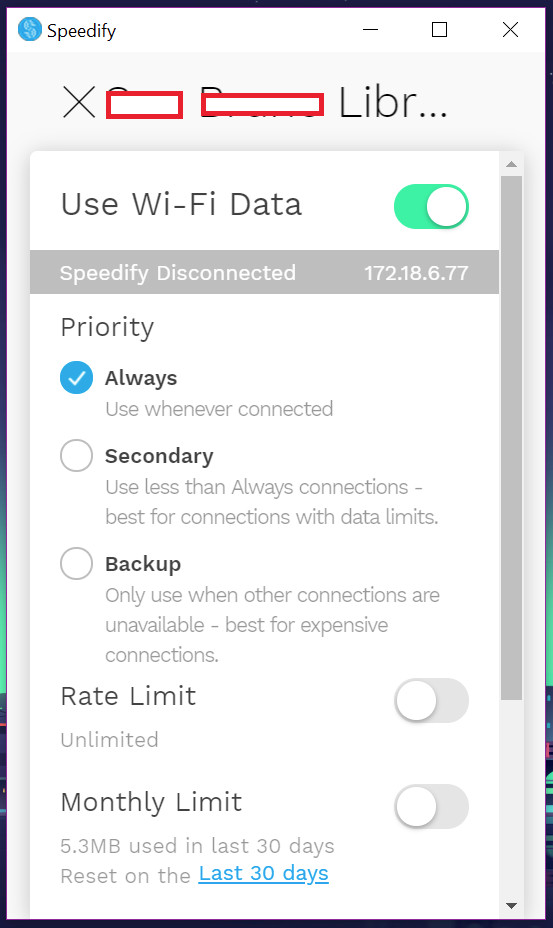
And as you can see, you can mark any connection as secondary or primary, and set limits on it, with great ease.
This isn’t just so you can prioritize the networks you trust the most. This is ESSENTIAL to being cost-friendly.
After all, Speedify is particularly geared towards mobile users. And if you don’t have unlimited data, this makes it super easy to cut costs. Seriously, look how easy it is.
I do have a couple complaints, though:
Firstly, if Speedify doesn’t automatically register a new connection, clicking the connection bubble at the top (while it has a plus sign) will only open help articles on the website.
There is no option for manually adding a new connection within the app itself—I find this absolutely bonkers and a terrible lapse in the UI.
Secondly, Speedify doesn’t always register a new connection. Speedify has some guides on how to do this, but I’ve found them only moderately helpful.
Now, let me be clear on that second note: I’ve only had that problem on the PC, while tethering my phone or using it as a hotspot.
But if you just use your phone, Speedify ALWAYS detects both your data and WiFi connections.
And that’s the last thing I’ll show you for this section, folks!
All in all, Speedify is super easy from beginning to end. Despite the fact that it seems to be a little more technically minded (dealing with multiple connections and all), Speedify always makes things easy for the user.
And, Speedify did one of the things I like the most in apps:
It kept things easy WITHOUT reducing features or user control. Speedify would be perfect, if not for a couple glitches and poor design choices here and there.
Oh, speaking of features and user control:
Pricing and Features
Yep, we all care about features!
But there’s something else that heavily related to features, and which most of us are looking at first:
The price!
To really look at Speedify’s prices, I’m gonna have to give you an overview of their plans.
So here are the first three:
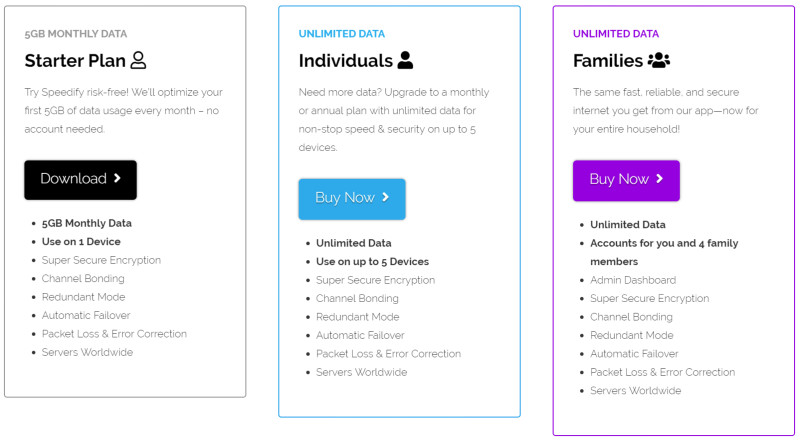
The first one is, as you might have noticed, free!
This naturally means it is severely limited—it can only be used on one device and has a 5GB monthly data limit.
On the bright side, there are a ton of features even in the free version, including the channel bonding!
So as far as free VPNs go, this is probably one of the best ones around.
The second and third tier—Individuals and Families—are the “normal” VPN plans you’re used to.
As you can see, these are basically fully featured, and the main difference is that the family account has an admin dashboard.
But believe it or not, that’s not even all of it:
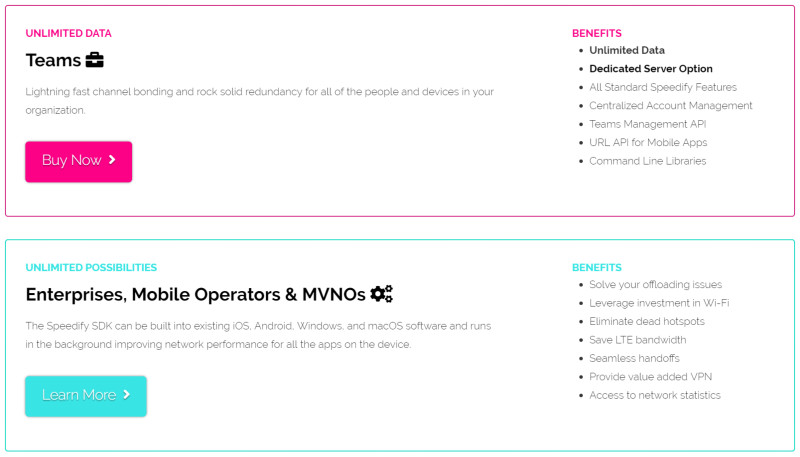
Speedify also has solutions for businesses, too.
Now, VPNs do frequently sell business plans…but Speedify seems to be more focused on it than most.
These have some extra features to really make business secure—dedicated servers, account management, network statistics, and a lot more.
Now, it’s the Individual, Family, and Team plans that have standardized prices, so that’s what I’ll take a look at now.
First up, the one that most of you are going to be interested in:
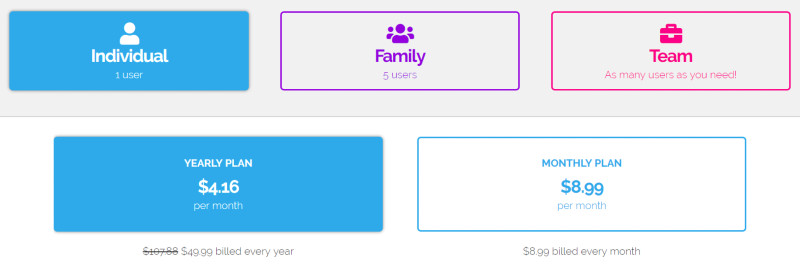
The Individual plan, again, is the closest thing to a normal VPN package.
The monthly price is actually a little lower than average, so that’s nice. The yearly plan is ALSO lower than average.
It’s too bad there aren’t longer commitments with even better deals, but it’s hardly the worst problem in the world.
At any rate, the Individual plan is definitely competitively priced.
This is what the family plans cost:

Okay, this is definitely a competitive pricing plan.
Considering you’re basically getting 5 accounts within the range of the price of one account (on other VPNs), this is a spectacular deal.
So if anyone wants to get a VPN for the family, this is probably worth a look at least because of price. Or even if you just want to get a plan with a few friends.
Now, the team plan is slightly more complicated:
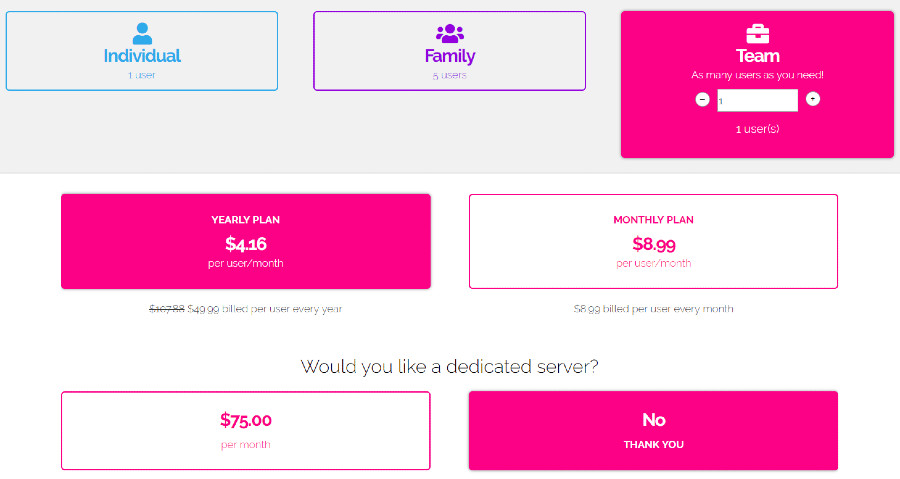
The team plan is basically the individual plan’s prices x the number of people you want to add to the plan.
It’s not as cheap per person as the family plan is, but keep in mind the team plan is geared towards professional use anyway.
And like I’ve said, the individual plans are decently priced to begin with. So it’s not a bad deal at all—quite the opposite.
Plus, you can add a dedicated server. It’s not a bad price for a dedicated server, though you may want to check if the specs are up to your standards first.
So, I think that mostly wraps up the basics, as far as the plans go. I’ll admit to being impressed early by the low prices.
And at first glance, it seems like the features are going to be decent. But let’s take a closer look at what those prices are really bring us:
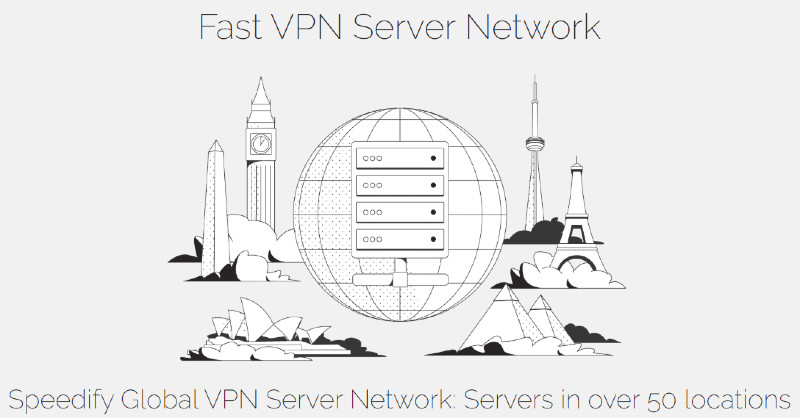
Ah, servers! Something we all want to know about.
As you can see, Speedify has servers in about 50 locations.
This isn’t close to the big leagues, but it’s not a bad count—though as you’d expect, most of the servers are in Europe and the United States.
Now, the actual server count is not bad—at over 1,000 servers.
I don’t think this will matter to most users, who just want access to locations, but it’s still a solid number.
And to its credit, Speedify does offer P2P and BitTorrent optimized servers, so that’s handy.
Speedify also has some more advanced features:

Redundant mode is a great security feature that bounces your traffic between different servers.
Automatic failover is increasingly common, but it’s still good to have. Especially on a platform like Speedify that is cost-conscious about cell data.
And, there’s even a speed test—it’s something I find surprisingly handy that only a small number of VPNs include.
There are a few more features in the privacy settings:
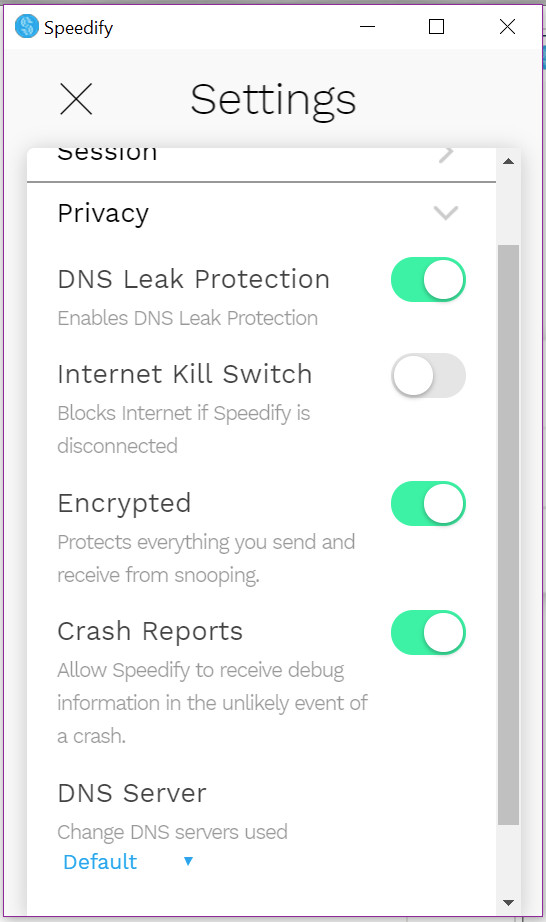
The kill switch is pretty basic, but at least it’s there. DNS leak protection and crash reports are also pretty basic.
The “encrypted” setting kind of weirded me out. It’s a VPN—why even have an option to not encrypt?
But I’m sure some people will appreciate it.
Now, that’s basically all the features. But I’ve saved one for last:
The channel bonding feature! This, of course, is at the core of what sets Speedify apart, and I showed you what it looks like in the ease of use section.
But let me tell you a little more about what it is, since it’s such a big part of Speedify’s identity:
Essentially, channel bonding is unique because it lets you combine connections at the same time.
This is different from VPN features like the failover, which automatically moves your phone or tablet’s VPN connection from WiFi to data in case WiFi fails.
This basically splits up your traffic between multiple internet connections, which makes your end result not only more secure, but fast.
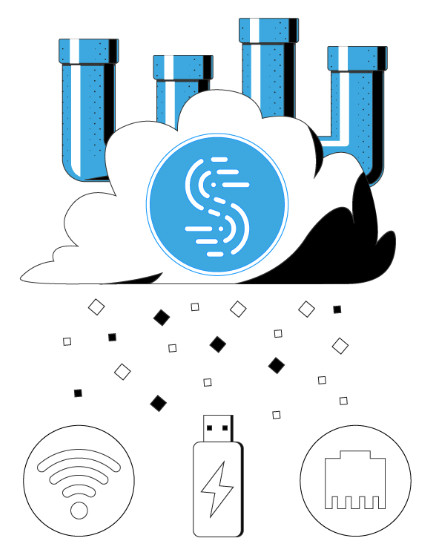
And with that, I think I’ve summed up Speedify’s features! I’ve got to say, Speedify actually turned out to be one of the more feature-rich VPNs around.
It’s nothing too intense, but it is robust. Plus, there are quite a few servers, enough locations, and lower than average prices.
Customer Support
Customer support shouldn’t be overlooked—you never know when you’ll need help watching Netflix in x country or when you’ll have some unexpected error with the service.
Or, you may just want help making the most of the channel bonding feature—whatever the reason, customer support is important to have.
Now, I mentioned earlier that Speedify on my laptop occasionally had problems with reading my phone as an added connection.
During these issues, I looked at Speedify’s customer support.
And you know what?
I was a little disappointed:
I found that the articles I was reading were very basic. This can be good sometimes, but sometimes you need to have more information.
I mean, this is the main support page. Does it look a little simple to you?
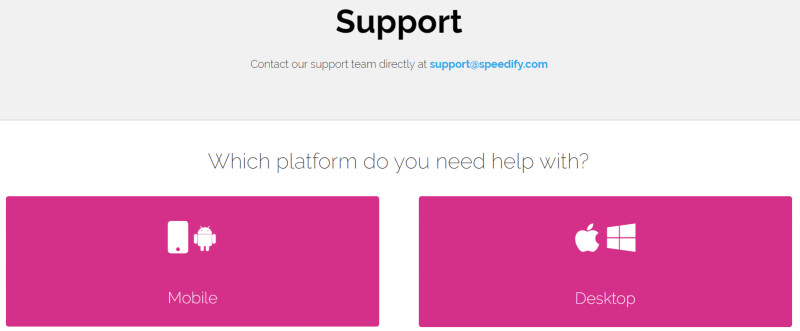
Okay, I’m being overly harsh for humor.
It’s not that bad:
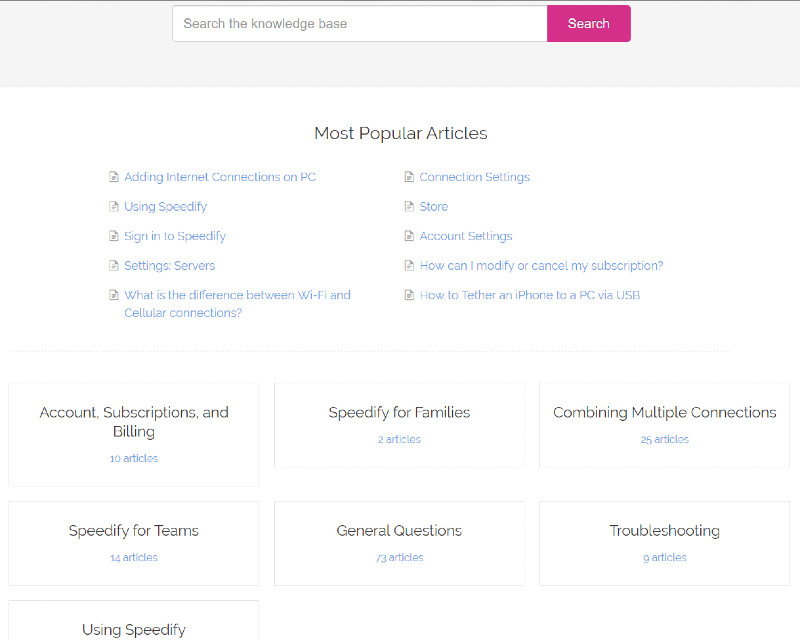
In fact, Speedify’s support information is pretty average-sized for a VPN. I’ve certainly seen a lot of VPNs with smaller knowledge bases and support centers.
So look, it’s not too bad. Most info you need is there, and there is a decent amount of articles.
But sometimes the articles can be too surface level.
Of course, in these instances, we should be able to turn to the other type of customer support:
Customer representatives!
But I have some bad news here:
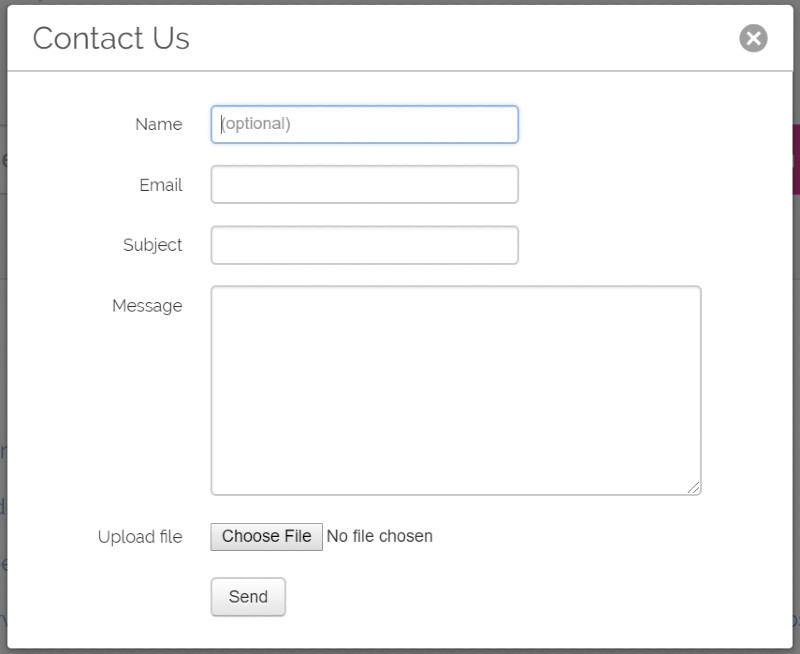
The ONLY method of contacting customer support is ticket/email.
Now, the actual quality of that email support is quite good. In fact, there’s nothing to complain about there—it’s speedy and helpful.
But the problem is that there’s no live chat option for immediate issues.
All in all then, I can’t say I’m too impressed by Speedify’s customer support.
The email support is good, and there’s a decent selection of support articles. But, that’s about it.
The lack of a live chat and the fact that some of the articles can be too surface-level is unfortunate, so I’ll have to say Speedify is just so-so when it comes to customer support quality.
But don’t be discouraged! Speedify has another chance now to redeem itself:
Security and Privacy
Oh boy. It’s time to evaluate Speedify’s strength in security and privacy.
In a perfect world, this would be the most redundant section of a VPN review.
But we don’t live in a perfect world:
There’s no such thing as perfect internet security, and some VPNs are infamous among privacy activists for violating privacy policies.
So how well does Speedify do in this imperfect world?
Well, it’s best to start with the basics:
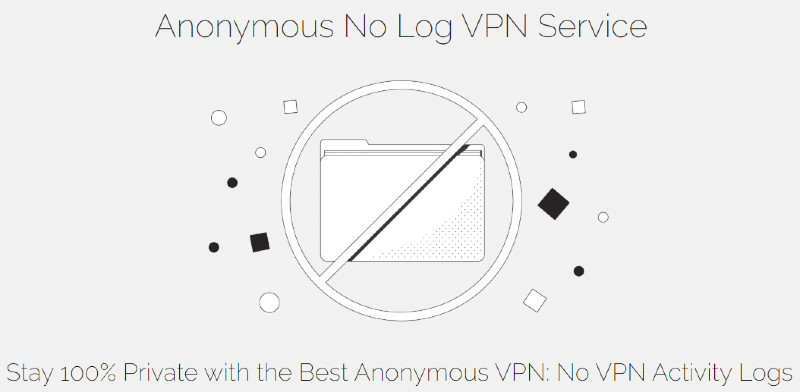
Speedify, like all VPNs, claims to have a no-logs policy.
I wish I could tell you more, but I can’t. Speedify hasn’t been implicated or accused of violating the no-logs rule.
But it also hasn’t had that policy proven by court documents or a third party audit.
If Speedify were a person, I’d say, “innocent until proven guilty.”
But Speedify is a VPN, and if you’re someone who cares about privacy, it’s best to be much more certain about a VPN’s promises.
Anyway, this leaves us to look at the privacy policy:

It’s not that bad, to be honest.
Speedify doesn’t really keep more logs than are necessary to run a business and distribute software. Most VPNs have roughly similar privacy policies in place.
Now, I have seen better privacy policies. I think Speedify could do with collecting a little less—but I’ll let it slide.
So far, nothing too bad, but nothing exceptional either.
Well, here’s some bad news:

No, not Philadelphia—Philly is fine.
The problem is Speedify is located in the United States. This means it’s at greater risk of being cracked by an intelligence agency—or more likely—at great risk of being forced to turnover data.
It’s not that you should simply ignore VPNs from the United States, but if you’re getting a VPN for the privacy, you may downgrade them to second choice.
Okay, but there’s good news too:
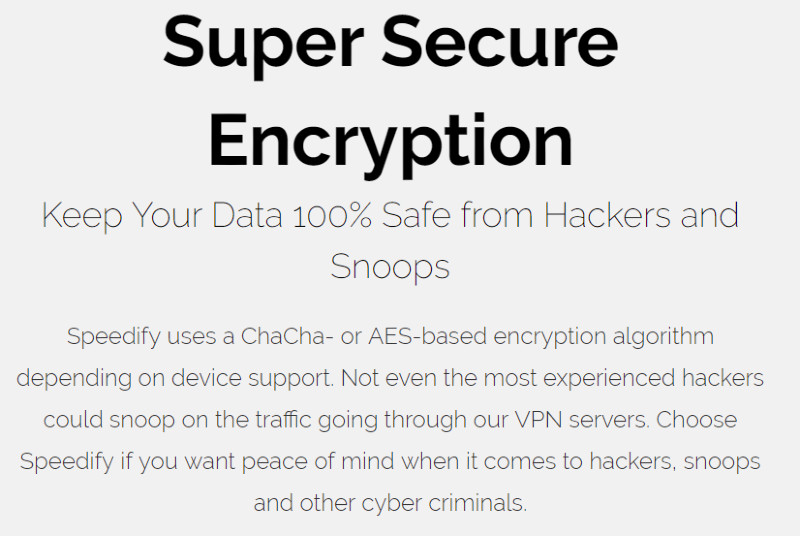
Another unique thing about Speedify is its use of ChaCha encryption. This is different from the typical AES-based encryption that basically every VPN uses.
AES isn’t bad by the way—it’s industry standard, military grade-stuff. But ChaCha is another type of encryption that’s just as secure, if not more so—and it’s unique to Speedify VPN.
So that’s kind of interesting. It doesn’t make Speedify the most secure VPN out there, but it’s a nice addition.
That last sentence actually captures Speedify’s security and privacy factor:
I haven’t seen much to really identify Speedify as particularly strong in this area. But, it doesn’t seem to fail in the fundamentals, and does everything right.
Without a doubt, it’s more secure to use Speedify than to browse the internet without a VPN, and there isn’t much reason to be nervous about Speedify—overall, decent job!
Ready to put everything together?
Pros
- There’s a free plan!
- GREAT performance.
- Speedify’s channel bonding features always works well on smartphones.
- The software is overall well-designed, despite some nitpicky issues I have. A major plus is the ability to easily regulate usage for certain types of connections—this way you won’t go over your data limits, for example.
- Overall, competitive pricing.
- A lot more plans than most other VPNs offer: options for families and organizations are very well-priced.
- On the higher end of average, in terms of features. It’s one of the more advanced VPNs, and it’s refreshing to see for a relatively low price.
Cons
- Speedify forces you to connect to P2P optimized servers in the Netherlands if it detects you have uTorrent (or similar software) running. This is immensely frustrating and feels way too restrictive for a VPN.
- Using the more advanced feature, the channel bonding, is not always intuitive. The app is supposed to automatically read added networks, but it only worked some of the time for me.
- Although the app is overall well-done, navigating servers and switching locations can sometimes be a pain.
- Customer support articles are sometimes shallow.
- No live chat.
- Speedify is located in the United States.
Conclusion: Do I Recommend Speedify?
Alright my companions, it’s the moment of truth: do I recommend Speedify?
Honestly?
I think Speedify is one of the more polarizing VPNs I’ve tried. Here’s what I mean:
It’s an easy yes for some people, and an easy no for others.
First of all, if you want a VPN for your phone, and you’re often on the go—Speedify is going to be a great pick.
Channel bonding isn’t limited to phones, but it’s best suited for them, and it works wonderfully when combining cellular data and WiFi.
And, those cost-cutting tools are very useful if you don’t want to use too much of your data.
I also especially recommend Speedify to businesses and people doing business, again, especially with mobile devices.
Because Speedify lets you stay secure AND performs really well while you’re on the go. It’s great for travelers and people frequently handling sensitive stuff on their phone or tablet.
Oh, and don’t forget: Speedify’s family and team plans are great for…well, families, friend groups, and teams!
Now, I’m less likely to recommend Speedify to individuals with computers, but I’d still recommend it…
IF you really like that channel bonding feature.
But if you’re not interested in the channel bonding, Speedify is good but maybe not the best.
It’s overall less pricey than average, has really great performance, decent features, and a decent set of locations.
But you could still find VPNs that are great performers, have better features or more features you like, more locations, and yes—comparable pricing.
Speedify is a much stronger VPN than I expected, but it’s not for everyone.
And if you’re not sure?
Don’t sweat it: you can try it risk-free!
Enjoy!
Write your own review
Have you tried Speedify, or do you currently use it? Am I understating how cool the channel bonding feature is, or am I overstating it? Neither?
Whatever you think, I want to hear it! You can leave a review below.

